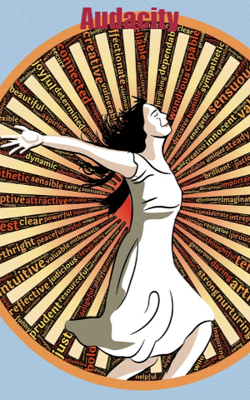Evolutionary Psychology( Sexual Jealousy)
Evolutionary Psychology( Sexual Jealousy)


Rubel, the introspective student, found himself contemplating the complex emotions of jealousy when it came to matters of sex and love. He couldn't help but feel a pang of jealousy whenever he observed his female friend making new male acquaintances as if he had some kind of ownership over her. He wondered why he felt this way and embarked on a journey of self-discovery through his readings on evolutionary psychology. As he delved deeper into the subject, Rubel stumbled upon the concept of sexual jealousy. This phenomenon, rooted in our evolutionary history, suggests that feelings of jealousy arise as a means to protect our genetic interests. In the context of human relationships, it often manifests when individuals fear the potential loss of their partners to others. To further grasp the concept, Rubel encountered two poignant stories that exemplified sexual jealousy's destructive potential. The first narrative revolved around a Canadian waitress who possessed exceptional beauty. Her attractiveness caught the eye of a model scout, leading her to receive an offer for a prominent role in a movie. However, her relationship with a waiter, who had played a crucial role in popularizing her as a model, became strained when she met a director and sought to embark on a new romantic journey. Consumed by sexual jealousy, the waiter ultimately shot the girl before turning the gun on himself, tragically ending both their lives.
The second story depicted a husband who experienced feelings of inadequacy due to his failures in life, including unemployment and depression. His wife, on the other hand, possessed remarkable talents and decided to pursue higher education in Canada. Overwhelmed by sexual jealousy and the fear that someone of higher status might take his wife away from him, he began accusing her of engaging in extramarital affairs. The husband's jealousy escalated to physical abuse, leaving his wife scarred and blind after he pinched her eyes on two separate occasions. As Rubel absorbed the weight of these stories, he was left astounded and disturbed by the destructive power of sexual jealousy. It dawned on him that his own feelings of jealousy towards his female friend were rooted in this evolutionary mechanism, designed to safeguard our genetic legacy. The realization made him pause and reflect on the intricate interplay between biology, psychology, and human relationships. While Rubel found it unsettling to recognize the primal underpinnings of his emotions, he also understood that awareness is the first step towards self-improvement. Armed with this newfound knowledge, he resolved to confront and manage his feelings of jealousy in a healthier manner, realizing that possessing someone was an illusion and that love should be nurtured through trust, respect, and open communication.
Rubel continued his walk, contemplating the fascinating complexities of human nature and the lingering evolutionary remnants that shape our emotions and behaviour. He marvelled at the intricate tapestry of existence, knowing that understanding and embracing these aspects of ourselves could lead to personal growth and the cultivation of more fulfilling relationships. Indeed, sexual jealousy is not limited to humans but is observed across various animal species as well. Just like humans, animals too exhibit behaviours driven by the desire to protect their genetic interests and secure mating opportunities. Exploring the realm of sexual jealousy in the animal kingdom adds another layer of understanding to the evolutionary origins of this complex emotion. Take, for example, the case of certain bird species known for their intricate mating rituals and vibrant plumage. In these species, males often engage in elaborate displays of courtship to attract females. When a male notices another male encroaching on his territory or interacting with a female of interest, he may become jealous and engage in aggressive behaviours, such as fierce vocalization, physical confrontation, or territorial defence. These actions aim to deter rivals and secure the male's position as the preferred mate. In mammals, particularly among primates, sexual jealousy is also observed. Chimpanzees, for instance, exhibit territorial behaviours and fierce competition among males for access to fertile females. A dominant male will become jealous and aggressively assert his status when a rival male attempts to mate with one of his preferred females. This behaviour is driven by the desire to ensure the propagation of his own genes, as offspring resulting from a female's mating with a rival male would dilute his genetic lineage.
Even in species where monogamy is more prevalent, such as certain birds, rodents, and even some primate species like gibbons, sexual jealousy can still arise. This occurs when an individual suspects or perceives a potential rival encroaching on their mate or forming a bond that threatens the existing pair bond. In these cases, animals may display various forms of mate guarding, including increased vigilance, physical aggression, or vocal displays, to maintain their exclusive access to their partner. The underlying mechanisms of sexual jealousy in animals are shaped by evolutionary pressures, just as they are in humans. It is crucial to note that the manifestation and intensity of sexual jealousy can vary depending on factors such as the species' mating system, social structure, and ecological context. However, the fundamental principle remains the same: the preservation of genetic interests and the desire to secure reproductive success. Rubel found it fascinating to discover that sexual jealousy extends beyond human beings and permeates the animal kingdom. This realization highlighted the deep-seated nature of this emotion and its evolutionary significance. It reminded him that although human society has evolved complex social structures and cultural norms, our emotional responses still bear the imprints of our ancestral past. As he continued his contemplative walk, Rubel marvelled at the intricate tapestry of life, with each species navigating the delicate balance of love, sex, and jealousy in their own unique ways. The study of evolutionary psychology opened his eyes to the interconnectedness of all living beings and the universal nature of certain emotions, helping him gain a deeper appreciation for the complexities of the natural world.
It's important to approach the topic of attraction, luxury, and gender dynamics with a balanced perspective, considering the wide range of individual preferences and cultural variations that exist. While it is true that material possessions, including luxury items like diamonds, have been historically used as symbols of status and attraction, it would be inaccurate to make broad generalizations about the motivations and priorities of an entire gender. Attraction and the desire to impress potential partners are multifaceted and influenced by various factors, including social norms, personal values, and individual preferences. Both men and women can be attracted to different qualities in a potential partner, ranging from physical appearance to personality traits, shared interests, emotional connection, and more.
In some societies, there may be cultural practices or traditions that involve elaborate ceremonies or the exchange of valuable gifts during marriage. For example, the British monarchy is known for its grandiose weddings and the use of precious gemstone engagement rings. However, it is crucial to remember that these practices are specific to certain cultural contexts and do not represent the preferences and behaviours of all individuals or societies. Additionally, it is not accurate to claim that men only care about sex and women solely focus on attracting men or decorating themselves. Such statements overlook the rich diversity of human desires, motivations, and interests. Individuals seek different qualities in their partners, including emotional connection, shared values, intellectual compatibility, and mutual respect. Furthermore, people's interests extend beyond the pursuit of romantic relationships, with careers, personal growth, hobbies, and community involvement often being significant aspects of their lives.
It is essential to approach discussions about relationships, gender dynamics, and material possessions with sensitivity and avoid reinforcing stereotypes or making sweeping generalizations. Recognizing and respecting the autonomy and agency of individuals in their choices and preferences allows for a more nuanced understanding of human behaviour and relationships.
Rubel, being a thoughtful student, understood the importance of not reducing complex topics to simplistic stereotypes. He recognized that human experiences and motivations are diverse and influenced by a multitude of factors, including personal values, cultural norms, and individual desires. With this understanding, he sought to approach the topic of attraction and gender dynamics with an open mind, appreciating the intricacies and uniqueness of each person's journey in love and relationships.






























































